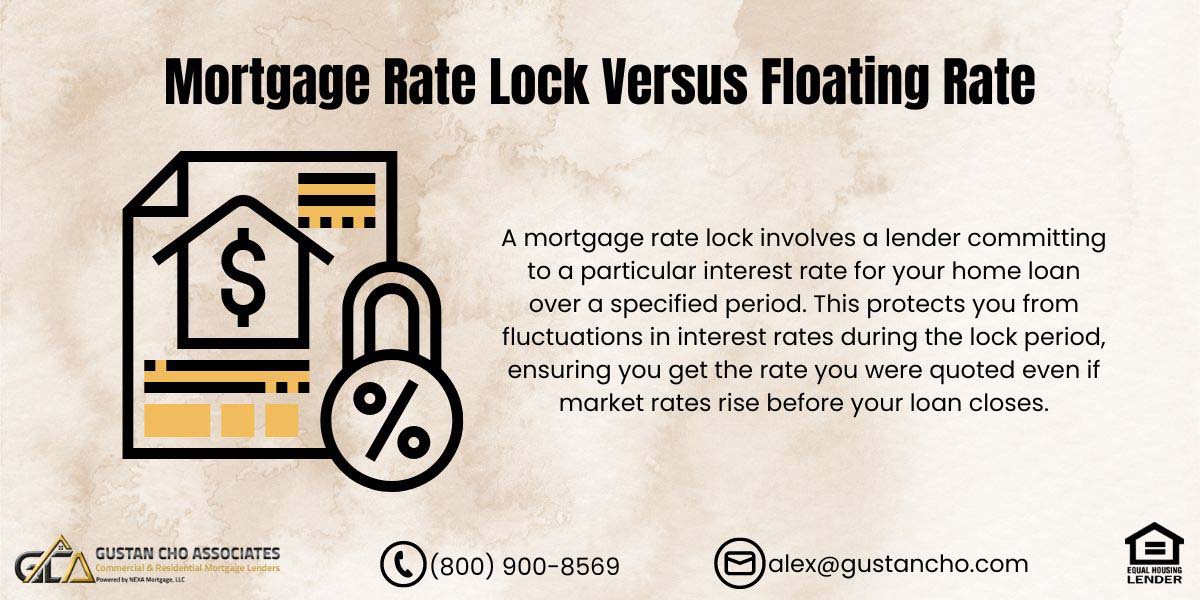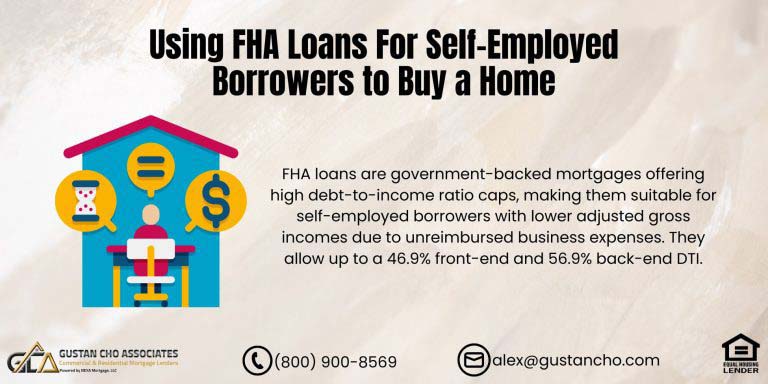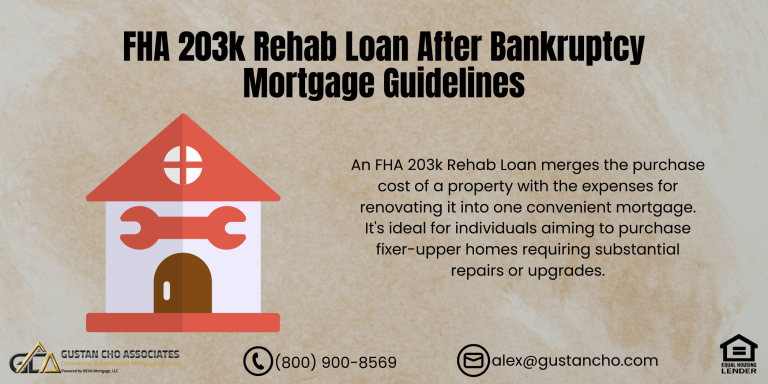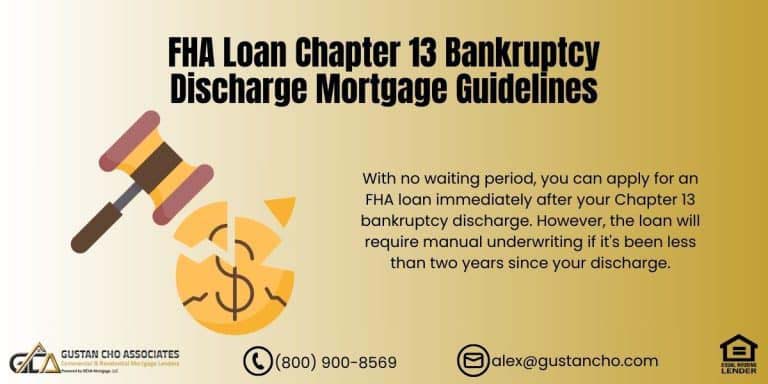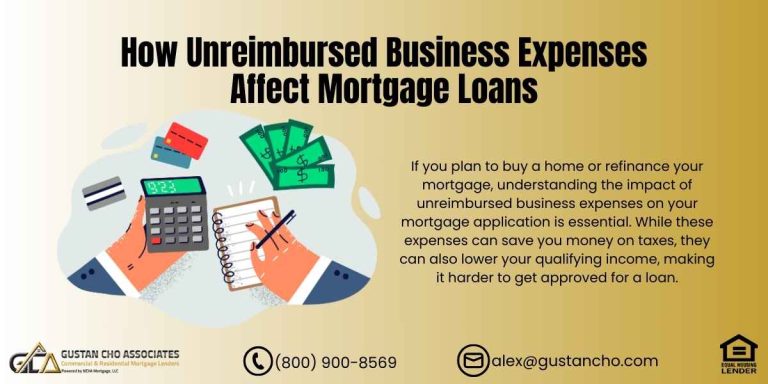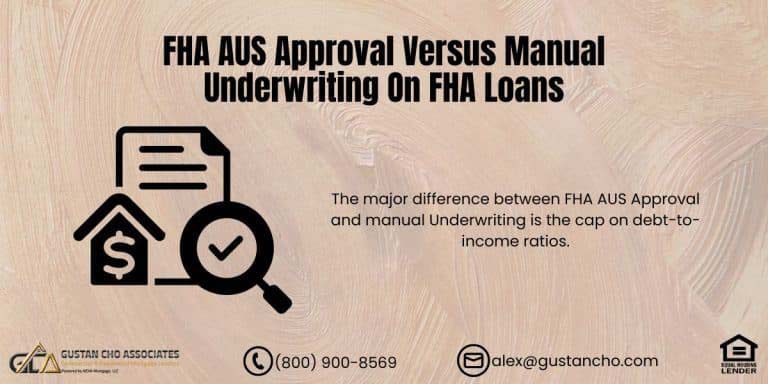This article covers the mortgage rate lock process and how to decide when to lock in a mortgage. You cannot close your mortgage without locking your interest rate when your lender gives you a mortgage rate quote that tells you what rate is available to you that day. But your mortgage rate is not guaranteed until you lock it in.
A mortgage rate lock means that the mortgage lock rate is good for the lock term. The longer the term of the mortgage rate lock, the more expensive it is. Usually loan officers will execute a mortgage rate lock sooner than later on borrowers with higher debt-to-income ratios in the event rising rates may disqualify the borrower for exceeding the max debt-to-income ratio cap guidelines.
Sometimes the facts of your application change enough to affect the risk to the lender. For instance, if you’re refinancing and your home appraisal comes in low, you could end up with a 90% loan-to-value instead of an 85% loan-to-value. That may increase your mortgage rate. If you fail to close within your lock period and mortgage rates have risen, you’ll probably have a higher rate unless you can extend your rate lock.
See today’s mortgage rates now.
Floating vs. Mortgage Rate Lock During the Loan Process
While your mortgage is in process, you can choose to “lock” or “float” your interest rate. “Locking” a mortgage rate means you and your lender make a commitment to each other. Your lender agrees to close your loan at the locked rate, even if mortgage rates are higher than when you locked. You agree to close at the locked rate, even if mortgage rates are lower than when locked.
“Floating” is a rate that means you have not yet locked. Your interest rate is not guaranteed, and when you close, it may be higher or lower than current rates. You can lock in a mortgage rate for 7 to 180 days. The shorter your lock period, the lower the interest rate. When lenders quote mortgage rates, they usually quote a 30-day lock. If you close your loan within the lock period, you’ll get that interest rate, even if current rates differ.
Confused About Mortgage Rate Lock vs. Floating Rate? Let Us Help You Decide!
Contact us today to discuss your options and find the best strategy for your home loan.
What Happens if Mortgage Rate Lock Expires?
A lender must do a rate lock-in for an underwriter to issue a clear to close. You must be locked when the lender issues your loan documents. If you fail to close within your mortgage rate lock period, borrowers have several options. You may be able to extend your lock for a day or two.
Your lender may be able to do this without an extra charge. Longer extensions, up to a week or two, will most likely come for .125% to .25% of the loan amount. Your other option is to relock your loan. You’ll get the same rate if interest rates are the same or lower than your locked rate. If rates are higher, you’ll get a higher rate. There is normally no charge to relock a mortgage rate. You cannot close at a lower rate after locking at a higher rate, even if your lock expires.
Related: Can I Change Lenders After Locking My Mortgage Rate?
Mortgage Rate Lock Timeline
The mortgage process takes place in stages. You can lock in your mortgage rate at any time during this process. However, you need a property address to lock in a mortgage. If you’re getting pre-approved for a home purchase before you go home shopping, you won’t be able to execute a mortgage rate lock. You must be under contract first. Your choice to lock or float depends on several factors. Longer locks cost more than shorter ones. So even if rates are rising, you might not want to lock in for six months if your new house is still under construction. How are interest rates trending?
If interest rates are rising, you might wish to lock in. If they are heading down, you might wish to float until right before closing. How long will it take to close your mortgage? Try to time your lock to cover your expected escrow.
If your closing day is in 45 days, a 30-day lock won’t do you much good. How do you feel about risk? Consider locking if you can get a good rate and your loan approval would not survive a rate increase. On the other hand, if you don’t mind gambling to try and get a lower rate, you could choose to float. If you’re refinancing, your strategy might be different. You could apply for preapproval, wait for rates to drop into your target zone, and then do a fast lock and close. Or just “set it and forget it” if rates are good and you don’t want to risk them increasing.
Mortgage Rate Float-Down: Best of Both Worlds?
Some people want to have their cake and eat it too. They want to lock in at today’s rate if rates go up. But they also want to lock at tomorrow’s rate if rates drop. They want it both ways. And they can have it both ways with a mortgage rate float-down.
A float-down is an option to lock in your rate now. So if rates rise before you close, you get today’s lower rate. But if rates fall before closing, you get the lower rate.
Float-down options cost money, however. Usually upfront. And float-down options are not standard. Some allow you to lock a rate and then relock if rates drop at any time during the loan process. Others only compare your locked rate with the current rate when you close your loan. In addition, many float-downs only kick in if the rate falls to at least .25% below your locked rate. For these reasons, few borrowers purchase float-down options. But they are available.
Related: What Happens if Your Credit Score Changes During the Mortgage Process?
Can Interest Rate Change During the Mortgage Process?
Mortgage rates change constantly, like stock prices or other financial products. As long as your interest rate is not locked, it is subject to change. A loan officer issues your Loan Estimate when you apply for a mortgage. On the loan estimate, an estimated mortgage rate will be quoted. The rate on the Loan Estimate is not locked.
The Loan Estimate is a disclosure that used to be called a Good Faith Estimate. It states a mortgage interest rate available at the time of disclosure.
Mortgage rates will float until the borrower locks the interest rate. When you lock in your rate, you get the interest rate in effect when you lock. It will likely differ from the rate disclosed on your Loan Estimate form. However, your interest rate could change during the loan process even if you are locked. If you switch to a different program, your rate will be different.
Lock in Your Mortgage Rate or Go with a Floating Rate? We Can Help You Choose!
Reach out now to learn how each option can affect your mortgage and help you make the best decision.
When Does The Lenders Need To Execute a Mortgage Rate Lock?
The decision to lock or float is entirely up to the borrower. Your loan officer may contact you and suggest locking, but the decision is yours. The only rule is that you cannot close without being locked. That said, your loan officer is not likely to recommend locking in if you are not closing soon or are not yet approved.
If you want to lock in, contact your loan officer and discuss the interest rates available at different lock terms — 15-day, 30-day, etc. You’ll want to ensure you can close your loan before your lock expires.
Your loan officer may ask you to sign a form stating the terms of your lock. It’s best to write your request, whether signing a form or sending an email or text. If you send an email or text, ask for confirmation to ensure the lock request was received and executed.
Should I Take Floating Rate or Fixed Rate Mortgage?
Considering your financial situation, risk tolerance, and future plans is important when deciding whether a floating rate (an adjustable-rate mortgage or ARM) or a fixed-rate mortgage is the best option. It’s crucial to remember the significance of a Mortgage Rate Lock and to secure the best rate for Home Loan while making this decision.
Fixed Rate Mortgage
Pros:
- Predictable Payments: Your monthly principal and interest payments remain the same throughout the life of the loan, making it easier to budget.
- Protection from Rising Rates: With a mortgage rate lock, you are protected from interest rate increases, which can be particularly beneficial if rates are currently low but expected to rise.
- Long-Term Stability: Ideal if you plan to stay in the home for a long period, as it offers financial stability and a consistent rate for home loan.
Cons:
- Higher Initial Rates: Fixed-rate mortgages typically have higher initial interest rates than floating-rate mortgages.
- Less Flexibility: If interest rates drop significantly, you need to refinance to take advantage of the lower rates, which can involve additional costs.
Floating Rate Mortgage (ARM)
Pros:
- Lower Initial Rates: Adjustable-rate mortgages commonly begin with interest rates lower than those of fixed-rate mortgages, potentially leading to reduced initial monthly payments.
- Potential Savings: If interest rates stay the same or decrease, you could save money compared to a fixed-rate mortgage.
- Flexibility: If you plan to sell or refinance before the adjustable period begins, you might benefit from the lower initial rate for home loan.
Cons:
- Payment Uncertainty: The interest rate can increase after the initial fixed period, leading to higher monthly payments.
- Market Risk: Your payments could increase significantly if interest rates rise.
- Complex Terms: ARMs can be complex, with terms that may include rate caps, adjustment intervals, and margin rates that can affect your payments.
Considerations
- Duration in the Home:
- If you plan to stay in your home for a long time, a fixed-rate mortgage might be more suitable as it offers long-term stability and a locked-in rate for home loan.
- If you plan to move or refinance within a few years, an ARM could save you money with lower initial rates.
- Financial Stability:
- Suppose you prefer predictable payments and want to avoid the risk of rising interest rates. In that case, a fixed-rate mortgage with a mortgage rate lock is likely the better choice.
- An ARM could be advantageous if you have the financial flexibility to handle potential rate increases and are comfortable with some uncertainty.
- Interest Rate Environment:
- If interest rates are low and expected to rise, locking in a fixed rate can protect you from future increases and secure a favorable rate for home loan.
- If rates are high and expected to fall, an ARM might allow you to benefit from lower rates.
- Economic Conditions:
- Consider the overall economic outlook and how it might impact interest rates. Be sure to connect with a financial advisor to gain insights into the potential opportunities and risks amidst the current and future economic landscape.
Example Scenario
If you’re buying a home with plans to stay for more than ten years and want stable, predictable payments, a fixed-rate mortgage with a mortgage rate lock would likely be the best option. However, if you anticipate moving within five years and can handle potential rate adjustments, an ARM could save you money in the short term.
Choosing between a floating-rate and a fixed-rate mortgage depends on your circumstances and financial goals. Carefully assess your situation, consult a mortgage advisor, and consider the current interest rate environment and your long-term plans to secure the best rate for Home Loan.
Should You Lock in Your Mortgage Rate or Let It Float? Let’s Break It Down for You!
Reach out now to learn more about both options and get started with the best strategy for your mortgage.
Why do Banks Prefer Floating Rates?
Banks often prefer floating rates or adjustable-rate mortgages (ARMs) because they help manage interest rate risk and align assets with liabilities. With floating rates, the interest rate on the loan can adjust periodically based on market conditions, allowing banks to pass some of the interest rate risk to borrowers. This adjustment capability means that if interest rates rise, the rate for home loans will also increase, potentially leading to higher earnings for the bank.
Floating rates allow banks to respond quickly to changes in the economic environment and monetary policy, helping them stay competitive in the lending market.
Adjustable-rate mortgages are initially attractive to borrowers due to their lower initial interest rates than fixed-rate mortgages. This can help banks attract more customers looking for lower initial payments. While a mortgage rate lock offers borrowers stability by fixing the rate for a certain period, floating rates allow for periodic adjustments, reducing the risk associated with long-term fixed-rate commitments. This periodic adjustment helps banks maintain a balanced interest rate structure and encourages early repayment from borrowers anticipating future rate hikes, thereby improving the bank’s liquidity and reducing long-term risk.
What Type of Mortgage Rate Lock Is Best
Most loan officers will do a 15-day or 30-day mortgage rate lock. The shortest lock available is seven days. You should only do a 15-day lock when you have loan approval and are ready to close quickly. Homebuyers and Homeowners who need to qualify for a mortgage with a national direct lender with no overlays on government and conventional loans can contact us at Gustan Cho Associates at 800-900-8569 or text us for a faster response. Or email us at gcho@gustancho.com. The team at Gustan Cho Associates is available seven days a week, evenings, weekends, and holidays.
FAQs: Mortgage Rate Lock Versus Floating Rate
- 1. What is a mortgage rate lock? A mortgage rate lock involves a lender committing to a particular interest rate for your home loan over a specified period. This protects you from fluctuations in interest rates during the lock period, ensuring you get the rate you were quoted even if market rates rise before your loan closes.
- 2. How does a mortgage rate lock work? When you receive a mortgage rate quote from your lender, the rate is available to you that day but is only guaranteed once you lock it in. The mortgage rate lock ensures the quoted rate is good for the lock term. The longer the mortgage rate lock, the more expensive it can be.
- 3. Why do loan officers execute mortgage rate locks sooner for some borrowers? Loan officers may lock the rate sooner for borrowers with higher debt-to-income ratios to prevent rising rates from disqualifying them by exceeding the maximum debt-to-income ratio guidelines.
- 4. What happens if your mortgage rate lock expires? If your mortgage rate lock ends before closing and rates have increased, you will probably receive a higher rate unless you can prolong your lock. Extending the lock can vary from one day to several weeks and may involve additional expenses.
- 5. What is the difference between locking and floating your interest rate? Locking your mortgage rate means committing to a specific rate for a set period, ensuring stability. Floating means your rate is not yet locked and may be higher or lower when you close.
- 6. Can you close your mortgage without a mortgage rate lock? No, you cannot close your mortgage without locking your interest rate. The lender must have a locked rate to issue your loan documents.
- 7. What are the advantages of a mortgage rate lock? A mortgage rate lock provides protection from rising interest rates and helps you budget by ensuring predictable monthly payments.
- 8. How does a rate for home loan impact your decision to lock or float? The rate for home loan influences whether you lock or float. Locking can protect you from future increases if rates are low and expected to rise. If rates are high and expected to fall, you should float until closing.
- 9. What should you consider when choosing a lock period? Consider the duration of the lock period and your expected closing date. Longer lock periods cost more, so timing your lock to cover your expected escrow is crucial.
- 10. What is a mortgage rate float-down? A float-down option lets you lock in a rate now and benefit from a lower rate if rates drop before closing. This option typically costs extra and is not standard with all lenders.
- 11. Why do banks prefer floating rates? Banks prefer floating rates because they help manage interest rate risk by allowing periodic adjustments based on market conditions. If rates rise, this can lead to higher earnings and help banks stay competitive.
- 12. What type of mortgage rate lock is best? The best mortgage rate lock term depends on how quickly you can close your loan. Shorter locks, like 15 or 30 days, are common and cost-effective if you are ready to close quickly. Contact a lender like Gustan Cho Associates for guidance tailored to your situation.
This blog about Mortgage Rate Lock Versus Floating Rate was updated on June 21st, 2024.
Rate Lock or Floating Rate – Which Is Right for You? Let’s Discuss Your Best Option!
Contact us now to explore your options and make an informed decision.


